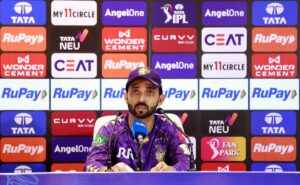
After Hair Dryer, Trimmer Given As Reward For Player Of The Match In PSL 2025
Unusual PSL 2025 Rewards: Trimmer Given as Player of the Match Prize to Hasan Ali
Table of Contents
- PSL 2025’s Trend of Practical Rewards Makes Global Headlines
- Hasan Ali’s Exceptional 4/28 Performance Earns Trimmer Prize
- How Unconventional Cricket Awards Went Viral on Social Media
- The Hair Dryer Precedent: Previous Household Items as Cricket Awards
- Players’ Reception to PSL 2025’s Unique Recognition Approach
- Babar Azam’s Performance Struggles Amid PSL 2025 Captaincy Pressure
- Basit Ali’s Critical Comparison Between Babar and Kohli’s Approach
- Analyzing the Impact of Captaincy on Batting Performance in T20 Cricket
- PSL 2025’s Significance for Pakistan Cricket’s Development
Hasan Ali proudly displays his unconventional Player of the Match award – a trimmer – after his stellar bowling performance in PSL 2025
The Pakistan Super League (PSL) 2025 has been generating buzz not just for thrilling cricket action but for its distinctly unconventional approach to player recognition. In a tournament where exceptional performances are typically rewarded with trophies or cash prizes, PSL organizers have taken an unexpectedly practical turn that has cricket fans worldwide talking. The latest incident involves Pakistan fast bowler Hasan Ali receiving a trimmer as his Player of the Match award for an outstanding bowling performance, continuing a trend of household appliances replacing traditional cricket accolades.
PSL 2025’s Trend of Practical Rewards Makes Global Headlines
In a surprising departure from cricket tradition, the PSL 2025 has introduced practical everyday items as prestigious player awards. This innovative approach to player recognition has quickly become one of the tournament’s most discussed aspects, with cricket enthusiasts and media outlets worldwide taking notice of the unusual practice.
The latest buzz surrounds Pakistan national team fast bowler Hasan Ali, who received a trimmer as recognition for his exceptional bowling display while representing Karachi Kings in their match against Lahore Qalandars. While unconventional, these practical rewards have created a unique identity for PSL 2025, distinguishing it from other T20 leagues globally where monetary incentives or decorative trophies remain the norm.
Why Unusual PSL 2025 Rewards Matter
The unconventional awards approach does more than just generate social media buzz – it creates memorable moments that enhance player recognition beyond traditional accolades. These practical items become conversation starters and foster deeper connections between players, fans, and brands in ways traditional trophies cannot.
Hasan Ali’s Exceptional 4/28 Performance Earns Trimmer Prize
Despite the Karachi Kings suffering a substantial 65-run defeat at the hands of the Lahore Qalandars, Hasan Ali’s individual brilliance stood out as the defining positive for his team. The experienced fast bowler delivered an outstanding bowling spell, claiming 4 wickets while conceding just 28 runs in his allocated 4 overs – a remarkable achievement in a format where bowlers often struggle to contain aggressive batting.
What makes Hasan’s performance particularly noteworthy is the contrast between his individual excellence and his team’s collective struggle. While Karachi Kings faltered in most departments, Hasan’s precision bowling, including crucial wickets at pivotal moments, demonstrated world-class skill and temperament. His economical figures in an otherwise high-scoring contest highlighted his ability to execute plans under pressure, ultimately earning him the Player of the Match designation despite being on the losing side – a rare achievement that underscores the exceptional nature of his contribution.
| Bowling Performance Metrics | Hasan Ali vs. Team Average |
|---|---|
| Wickets Taken | 4 wickets vs. 1.5 team average |
| Economy Rate | 7.0 vs. 9.8 team average |
| Dot Balls Bowled | 12 (50% of deliveries) |
| Crucial Phases Bowled | Power Play and Death Overs |
How Unconventional Cricket Awards Went Viral on Social Media
The moment Hasan Ali received his trimmer award quickly transcended the boundaries of traditional cricket coverage, becoming a viral sensation across multiple social media platforms. Cricket fans worldwide expressed a wide spectrum of reactions – from amusement and surprise to genuine appreciation for the tournament’s novel approach to player recognition.
The Karachi Kings’ official social media accounts amplified the moment by sharing the award ceremony with the caption: “Acknowledgment and appreciation. Hassan Ali receives the Surf Excel #ZiddSeKhel Top Performer of the Match award for his fantastic performance.” The post, accompanied by hashtags #YehHaiKarachi and #KingsSquad, accumulated thousands of interactions within hours, demonstrating how unconventional recognition can generate engagement levels far exceeding traditional award ceremonies.
Cricket commentators and analysts joined the conversation, with many noting how the practical nature of these awards adds a refreshing dimension to player recognition in a sport otherwise steeped in tradition. The viral nature of these moments has provided additional visibility for team sponsors and the PSL tournament itself, creating marketing opportunities beyond conventional cricket promotions.
The Hair Dryer Precedent: Previous Household Items as Cricket Awards
The trimmer presented to Hasan Ali isn’t an isolated incident but part of what appears to be an emerging tradition in PSL 2025. Earlier in the tournament, English batsman James Vince, also representing Karachi Kings, received a hair dryer as recognition for his match-winning performance against Peshawar Zalmi – establishing the precedent for practical household appliances as prestigious cricket awards.
This consistent approach suggests a deliberate strategy by tournament organizers and sponsors rather than a one-off promotional stunt. The pattern of practical rewards represents a significant innovation in cricket’s recognition systems, where traditional trophies, medals, and monetary bonuses have remained largely unchanged for decades across global tournaments.
Evolution of Cricket Player Awards
The transition from purely symbolic trophies to practical everyday items marks a significant shift in cricket’s approach to player recognition. While traditional cricket awards often gather dust on shelves, these practical items integrate into players’ daily lives, potentially creating longer-lasting associations with performance excellence.
Players’ Reception to PSL 2025’s Unique Recognition Approach
Following his award-winning performance, Hasan Ali addressed both the match outcome and the broader context of player recognition in Pakistani cricket. “We lost early wickets, couldn’t build partnerships, and the pressure mounted,” Hasan explained regarding his team’s defeat, demonstrating his professionalism by focusing first on team analysis rather than individual achievement.
When asked about receiving the unconventional award, Hasan displayed good humor mixed with genuine appreciation: “It’s different, but useful! I can actually use this at home, unlike trophies that just collect dust.” This pragmatic response captures a sentiment shared by many professional athletes who accumulate numerous traditional awards throughout their careers.
In a more reflective comment, Hasan addressed the psychological challenges faced by Pakistani cricketers: “Criticism for improvement is fine, but when families are targeted, it affects everyone. I understand that as public figures, we’re always under scrutiny. Our job is to respond with performances.” This statement highlights how even unusual recognition can provide meaningful validation during periods of intense public criticism.
Babar Azam’s Performance Struggles Amid PSL 2025 Captaincy Pressure
While Hasan Ali’s performance earned him unique recognition despite his team’s loss, Pakistan’s premier batsman Babar Azam continues to experience concerning form issues in PSL 2025. As captain of Peshawar Zalmi, Babar has struggled to make significant batting contributions, extending a worrying pattern from his recent international appearances.
The statistics tell a concerning story for one of world cricket’s most celebrated batsmen. Since his impressive 151-run innings against Nepal in 2023, Babar has failed to score a century for Pakistan across any format – a drought that has now extended to his PSL performances. His batting average in PSL 2025 has fallen below 30, a significant decline from his career T20 average of over 40.
These batting struggles appear to be affecting his leadership effectiveness as well. Under Babar’s captaincy, Peshawar Zalmi has suffered multiple substantial defeats in the ongoing PSL season, raising questions about the relationship between his personal form and team performance.
Basit Ali’s Critical Comparison Between Babar and Kohli’s Approach
Former Pakistani cricketer and prominent cricket analyst Basit Ali has been forthright in his assessment of Babar Azam’s current situation, drawing direct comparisons with Indian cricket star Virat Kohli’s career decisions. Through his popular YouTube channel, Basit suggested that Babar should follow Kohli’s example by relinquishing captaincy responsibilities to refocus on his batting fundamentals.
“Babar should leave captaincy and focus on his cricket. While chasing a 240-plus target, he gave away a catch to slip and got out. He is not focused,” Basit stated, highlighting specific technical lapses that suggest mental fatigue. “Zalmi management should remove him from captaincy and play him as a batter. He is harming himself.”
The comparison with Kohli provides a compelling parallel: “I will give the example of Virat Kohli. He retired from T20Is, and he is not even the captain of RCB. If you follow him, then learn something from him. You should play as a batter.” This analysis points to how strategic career decisions, including stepping back from leadership roles, can sometimes preserve a player’s batting legacy – a lesson Basit believes Babar should consider.
Analyzing the Impact of Captaincy on Batting Performance in T20 Cricket
The discussion surrounding Babar Azam’s dual responsibilities highlights a fundamental question in modern cricket: does captaincy enhance or diminish batting performance, particularly in the high-pressure T20 format? The comparison with Virat Kohli’s career decisions offers an instructive case study, as Kohli deliberately stepped back from Royal Challengers Bangalore captaincy and T20I cricket to extend his career longevity and maintain performance standards.
Recent cricket history provides numerous examples supporting both possibilities. Some players, like Kane Williamson and Joe Root, have maintained or even enhanced their batting while leading their teams. Others, including Kohli himself during certain periods, experienced statistical declines while balancing leadership and batting responsibilities.
For Babar specifically, the captaincy question becomes particularly relevant following Peshawar Zalmi’s recent 102-run defeat against Islamabad United. During that match, Babar failed to make a substantial impact while chasing a formidable 244-run target, giving credence to critics who suggest the mental demands of captaincy might be affecting his natural batting fluency.
Balancing Leadership with Performance
Strategic leadership decisions often determine career longevity for elite cricketers. The most successful players recognize when to embrace leadership responsibilities and when to relinquish them to preserve their primary skills – whether batting or bowling. This self-awareness becomes especially critical during performance slumps.
PSL 2025’s Significance for Pakistan Cricket’s Development
Beyond unusual player rewards and individual performances, the Pakistan Super League continues to serve as a vital platform for Pakistan cricket’s overall development. The tournament functions as both a showcase for established talent and a launchpad for emerging players seeking national team recognition.
For established players like Hasan Ali, strong PSL performances can revitalize international careers, regardless of whether the recognition comes in the form of traditional trophies or practical household items. His four-wicket haul for Karachi Kings demonstrates his continued value to Pakistan’s bowling attack, potentially strengthening his case for national team selection.
Simultaneously, the struggles of established stars like Babar Azam highlight how the PSL serves as a performance barometer even for the most accomplished cricketers. The tournament’s competitive intensity creates an environment where reputations offer limited protection against scrutiny – both from selectors and the cricket-loving public.
As PSL 2025 progresses, the unconventional player rewards may continue to generate social media attention and global cricket conversation. However, the underlying cricket narratives – from bowling excellence to captaincy debates – remain fundamentally important for Pakistan cricket’s trajectory, influencing selection decisions and player development pathways beyond the immediate tournament context.






